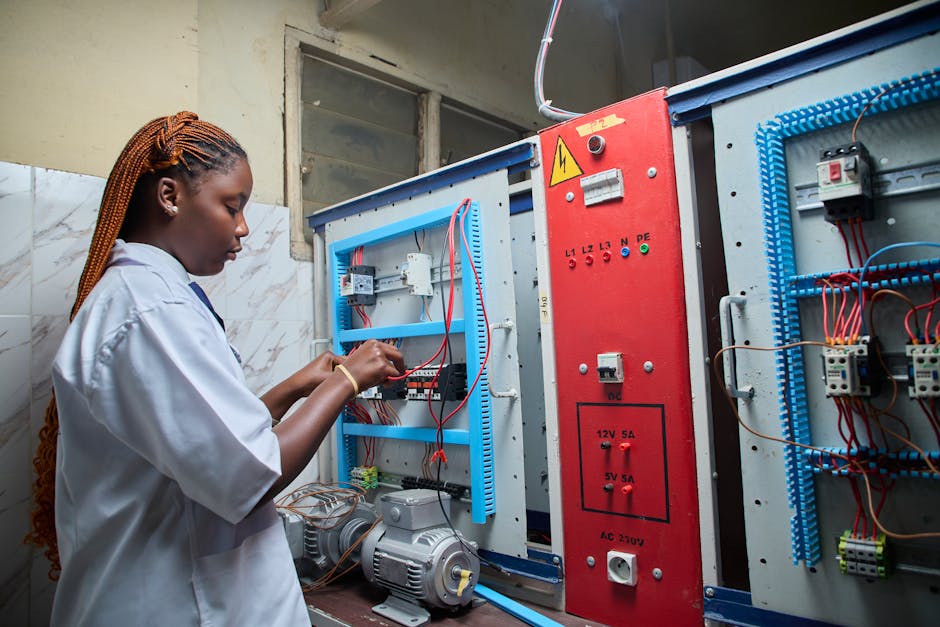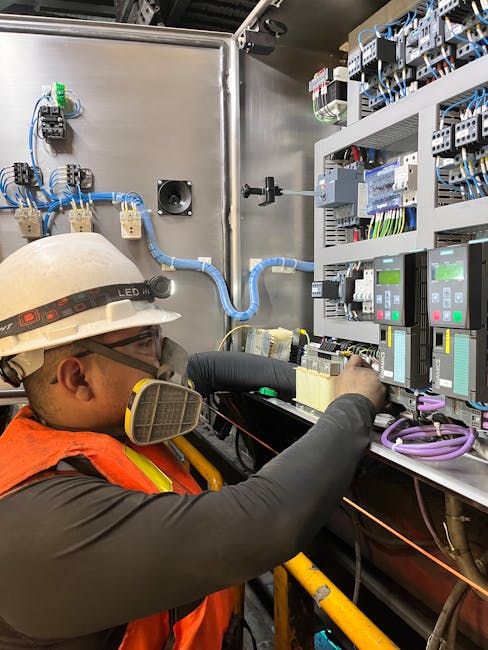Career pathway for maintenance
The role of a maintenance technician is fundamental to operational success. However, many professionals do not fully understand the structured progression available. This career pathway for maintenance technician roles offers clear advancement stages. Additionally, it provides increasing responsibility and compensation. Furthermore, facilities management relies heavily on these skilled individuals. This guide details the entire journey from entry-level to senior positions. It explores required skills, certifications, and strategic moves. The career pathway for maintenance technician in Facilities Management is both rewarding and diverse. Therefore, understanding its trajectory is the first step toward advancement.
Understanding Career pathway for maintenance
A career pathway for maintenance professionals is a structured framework. It outlines the progression from technical roles to management. Typically, it begins with an entry-level technician position. Consequently, individuals learn fundamental repair and upkeep skills. Additionally, they gain experience with building systems. This foundational stage is critical for long-term success. Therefore, a strong work ethic and willingness to learn are essential.
Facilities Management encompasses a wide range of building operations. These include HVAC, plumbing, electrical, and safety systems. Moreover, technicians must understand how these systems interact. The International Labour Organization guidelines often influence workplace standards. This ensures safe and efficient operational environments. Thus, a broad technical knowledge base is a significant advantage.
Career pathway for maintenance Benefits
Pursuing a defined career pathway for maintenance roles offers numerous advantages. Firstly, it provides clear goals and milestones for professional development. This clarity helps technicians focus their training efforts. Additionally, structured progression often leads to higher earning potential. Specialized skills in high-demand areas command premium salaries. Furthermore, job security is a major benefit. Skilled maintenance professionals are always needed.
The U.S. Department of Commerce trade information highlights growth in infrastructure sectors. This growth directly creates more opportunities for technicians. Moreover, career ladders often include cross-training. Therefore, professionals become versatile problem-solvers. This versatility makes them invaluable assets to any organization. It also opens doors to various industries beyond traditional facilities management.
How Career pathway for maintenance Works
The typical maintenance career ladder follows a logical progression. It starts with an Apprentice or Helper role. In this position, individuals assist senior technicians with basic tasks. They learn safety protocols and tool usage. Next, they advance to a Maintenance Technician I. Here, they perform routine maintenance and minor repairs independently.
The next step is often Maintenance Technician II or Specialist. This role involves complex troubleshooting and system-specific expertise. For example, one might specialize in HVAC or electrical systems. Subsequently, a Senior Technician or Team Lead position follows. This role includes supervising junior staff and managing work orders. Finally, the path can lead to Maintenance Supervisor or Facilities Manager. These roles focus on budgeting, vendor management, and strategic planning.
Best Career pathway for maintenance Practices
Success in this field requires adherence to several best practices. First, continuous learning is non-negotiable. Technology and building systems constantly evolve. Therefore, technicians must pursue ongoing education and training. Additionally, obtaining relevant certifications dramatically accelerates advancement. Certifications from organizations like BOMI or IFMA are highly regarded.
Another best practice is developing strong soft skills. Communication, problem-solving, and customer service are crucial. Technicians interact with tenants, managers, and vendors daily. Moreover, understanding UAE government employment regulations can be beneficial for international careers. Proactively seeking mentorship is also a powerful strategy. Learning from experienced professionals provides invaluable practical insights. Thus, combining technical skill with professional savvy is the ideal approach.
Career pathway for maintenance Implementation
Implementing a personal development plan is key. Start by assessing your current skills and identifying gaps. Then, set specific, measurable goals for each career stage. For example, aim to earn a certification within the next year. Additionally, seek out projects that challenge you and expand your skill set. Volunteer for cross-training opportunities whenever possible.
Formal education can also play a role. Many technicians pursue associate degrees in industrial maintenance or technology. Furthermore, understanding World Health Organization workplace standards is important for health-focused facilities. Utilize available professional resources to guide your journey. Documenting your achievements and newly acquired skills is also critical. This creates a strong portfolio for promotions or new job applications. Therefore, a proactive and documented approach ensures steady progress.
Advanced Career pathway for maintenance Strategies
Beyond the technical track, advanced strategies open further doors. One strategy is moving into a planning and scheduling role. This position focuses on predictive and preventive maintenance systems. It requires strong analytical and organizational skills. Alternatively, specializing in a high-value niche like building automation systems is lucrative. These systems are becoming standard in modern facilities.
Another advanced path is moving into consultancy or training. Experienced technicians can advise multiple organizations. They can also train the next generation of professionals. Moreover, data from the World Bank economic reports can inform decisions about emerging markets. For those with an entrepreneurial spirit, starting a contract maintenance business is an option. This requires business acumen in addition to deep technical knowledge. Thus, the advanced career pathway for maintenance is rich with possibilities.
Career pathway for maintenance Success Tips
Achieving long-term success requires more than just technical skill. Firstly, cultivate a reputation for reliability and thoroughness. Being the person who reliably solves problems builds trust. Additionally, develop a deep understanding of the business side of facilities. Know how your work impacts the organization’s bottom line. This makes you a strategic partner, not just a cost center.
Networking is another critical success factor. Join professional organizations and attend industry events. Furthermore, do not underestimate the value of safety. A flawless safety record is a significant career asset. It demonstrates professionalism and care. For personalized guidance, consider an expert consultation. Finally, always be adaptable. The industry changes rapidly. Embracing new technologies and methods keeps your skills relevant and in demand.
Future of Career pathway for maintenance
The future of this profession is bright and evolving. Technology is a major driver of change. The Internet of Things (IoT) and smart buildings are creating new specialties. Maintenance technicians will increasingly work with data and analytics. They will use sensors to predict failures before they happen. Therefore, digital literacy will become as important as mechanical skill.
Sustainability is another key trend. There is growing demand for technicians skilled in green building technologies. This includes energy-efficient HVAC, water conservation, and renewable energy systems. Moreover, the aging workforce creates a significant opportunity for new entrants. As experienced technicians retire, a leadership gap emerges. Prepared professionals can advance quickly into these roles. Thus, the future career pathway for maintenance is technologically advanced and leadership-focused.
Frequently Asked Questions
What is the starting salary for a maintenance technician?
Entry-level maintenance technician salaries vary by location and industry. Generally, they provide a solid living wage with significant overtime potential. Additionally, specialized skills can increase starting pay.
Which certifications are most valuable for advancement?
The Certified Maintenance & Reliability Professional (CMRP) is highly respected. Furthermore, HVAC and electrical licenses are critical for specialists. Therefore, choosing certifications aligned with your career goals is best.
How long does it take to become a facilities manager?
Typically, it takes 5 to 10 years of progressive experience. This journey involves moving from technician to lead to supervisor roles. Consequently, demonstrating leadership and business skills accelerates this timeline.
Is a college degree required for this career path?
A degree is not always mandatory. However, an associate or bachelor’s degree in facilities management or a technical field is beneficial. Moreover, it can fast-track promotions into management positions.
What are the biggest challenges in this profession?
Technicians often face unpredictable emergency repairs. Additionally, keeping pace with rapidly evolving technology is a constant challenge. Therefore, resilience and a commitment to learning are essential traits.
Can this career path lead to work in different industries?
Absolutely. Skilled maintenance professionals are needed in manufacturing, healthcare, education, and commercial real estate. Furthermore, the core skills are highly transferable across sectors.
Conclusion
The career pathway for maintenance within Facilities Management is a dynamic and promising journey. It offers structured growth from hands-on technical work to strategic leadership. This guide has outlined the stages, benefits, and strategies for success. Embracing continuous learning and certification is crucial for advancement. Additionally, developing soft skills and business acumen opens further opportunities. The future points toward technology and sustainability. Therefore, preparing for these trends is a wise investment. If you are ready to map out your own journey, we can help. Schedule appointment with our specialists today. Take the first step toward mastering your career pathway for maintenance and building a successful future.




